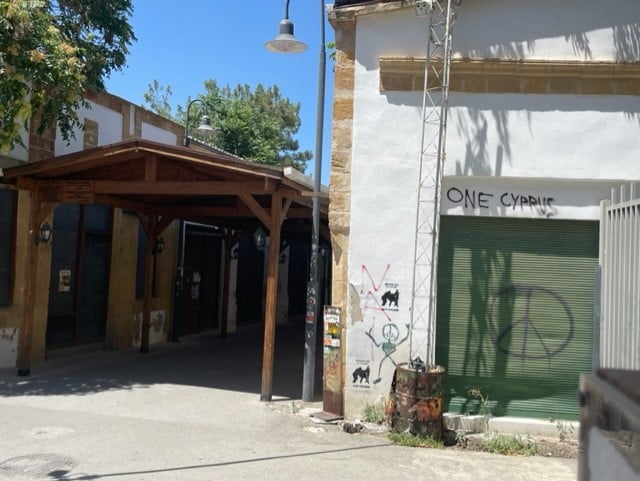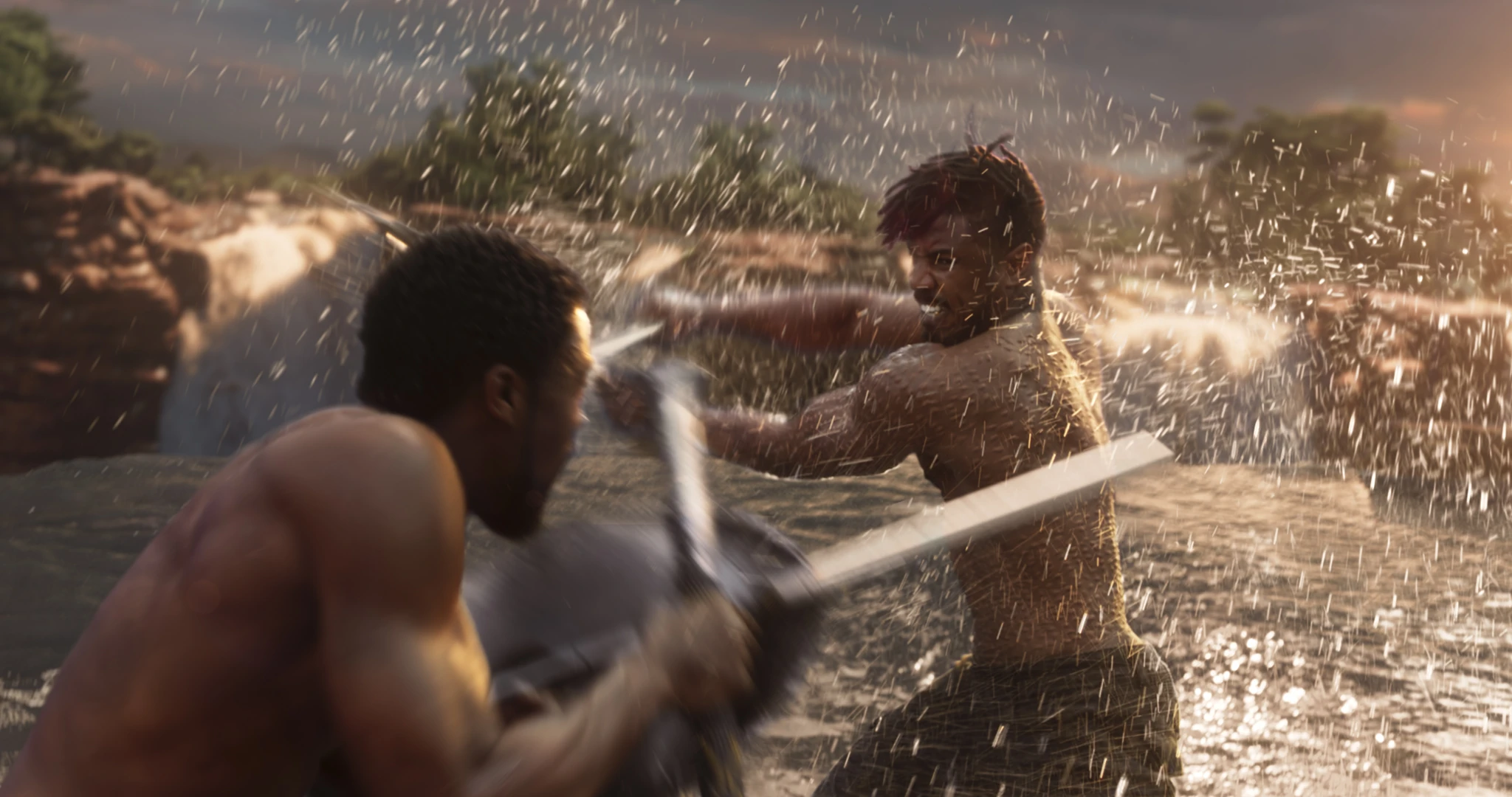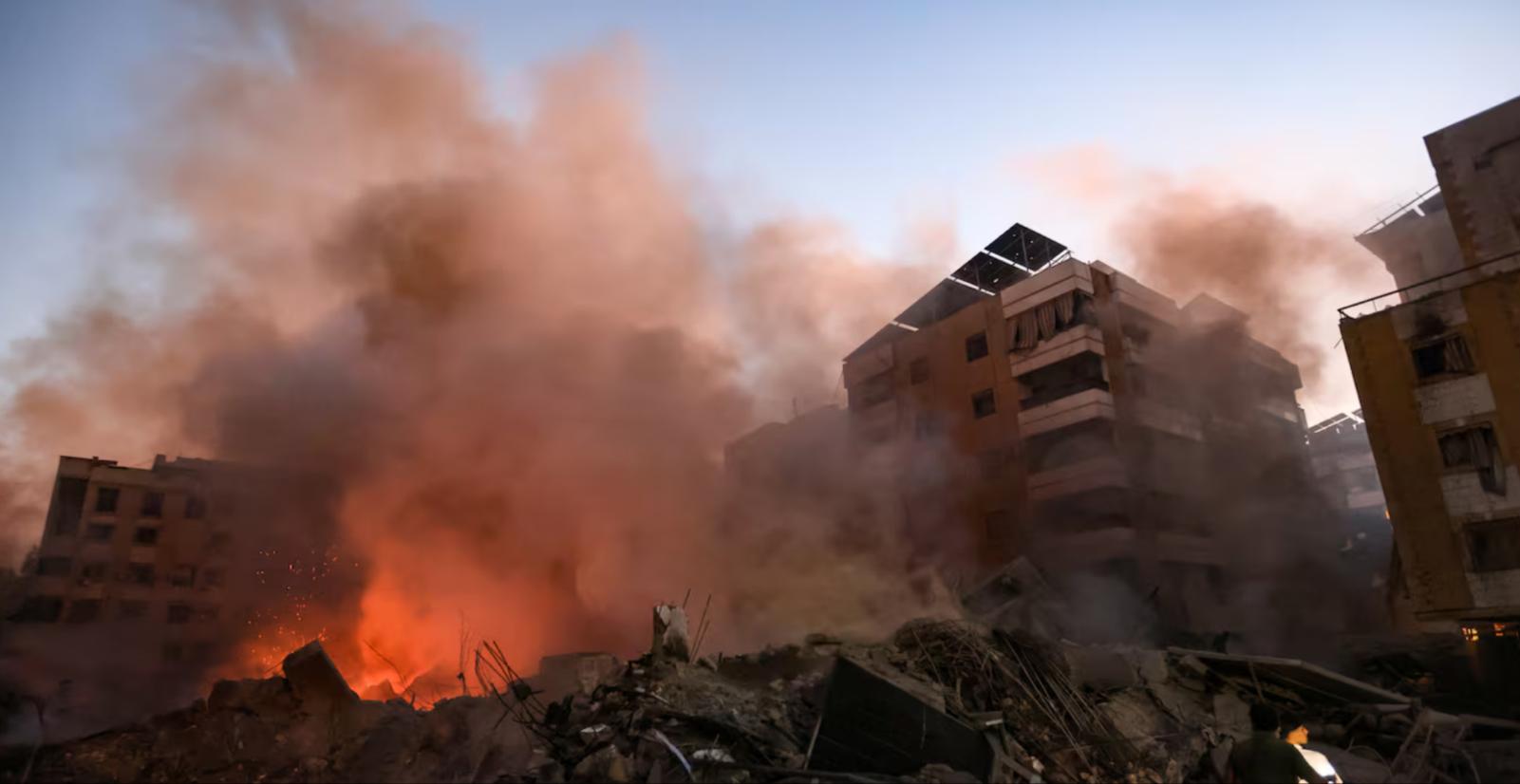
Cyprus is a sad illustration of the international community's incompetence in solving demographic disputes. The forgotten Turkish crime against the Cypriots resulted in the 1974 occupation of one-third of the island, and a divided capital. Despite the occupation, the Greek part of the island saw significant economic growth in the past years.
By Arthur Blok
A sweltering summer day in southern Nicosia, the divided capital of Cyprus. The mercury has risen to more than 40 degrees. Tourists on their way to the border crossing, in the divided Ledra Street seek shelter in the shadows.
The UN zone, just a stone's throw away, cuts right through the centre of Nicosia, separating the city into southern and northern sections. It spans an area of 346 square kilometres, varying in width from less than 20 metres to more than 7 kilometres—roughly one-third of the island.
After the fall of the Berlin Wall in 1989, Nicosia remains the last divided capital in Europe. A conflict largely forgotten by the international community started with the brutal invasion of Turkish forces on July 20 and lasted until the current status quo in August of that year. 1974.
Despite an economic and tourist boom that the island witnessed in the past years, the illegal Turkish occupation and division of the island remain a painful chapter in the country’s young but dynamic history.
On the Greek side of the island, there is not a single family without a dramatic or sad memory of those events. Chris Kikas, the owner of Diachroniki Art, specialised in art from local artists, remembers the day of the invasion like it was yesterday.
Kikas just finished his studies in the United Kingdom that year and was returning home. “In those days, flying was costly, so I booked a trip from the UK via the Western European mainland via Yugoslavia by bus to Greece. From there, I was planning on taking a boat to Cyprus.”
He continued: “I entered Greece on Monday, the 15th of July I entered Greece. When he arrived at the border, the Greek customer officer looked at his passport and laughed. “He said: Makarios? My answer was yes, but why? I turned to my friend and said, I have the feeling something bad has happened. Something terrible.”
It turned out he was right. The independent republic led by president archbishop Mihail Christodolou Mouskos (nick-named Makarios) had just ceased to exist only 14 years after its inception on 16 August 1960.

Economic boom
Cyprus’ GDP increased by 5.6% in 2022, driven primarily by domestic demand. Private consumption expanded enormously due to pent-up demand following the pandemic and to a significant employment increase. An optimistic influx of foreign investment in real estate pushed up investment in construction.
“Cyprus is one of Europe's most dynamic and multicultural societies, " said Paul Sies, Cyprus Airways' CEO, from his Larnaca office: “It is a society open to others keen on integrating foreigners. Look at the Lebanese who came here after their economy collapsed. They are all welcome here; people do not discriminate”.
With that, Sies, a senior airline management consultant, hit the nail. The mix of heavy demand, low taxes, and regional crises in countries like Syria and Lebanon with the well-spoken plays a pivotal role in the island’s economic growth.
There is almost a Dubai-like feeling when you walk into one of the major coastal towns like Larnaca, Limassol or Ayia Napa. New developments in nearly every street and numerous plots for sale.
Foreign investment is a very straightforward process, Sies explained. “You can easily buy an apartment for investment, as a second home, or to rent out. Tax rates are low. They do everything here to facilitate foreign investment. With much success.”
Ottomans versus the British
Cyprus, first handed over to Britain by the Ottomans in 1878 as insurance against Russian aggression, became a Crown colony in 1925. For Greek Cypriots (roughly 80 per cent of the inhabitants), the arrival of the British was initially seen as a blessing.
Greek Cypriots believed the British would support their dreams of union with Athens. This never happened, and the Greek Cypriots soon discovered that things had, been better under the Ottomans.
The struggle for the union with Greece grew into urban and guerrilla warfare between Greek Cypriots and the British in the 1950s. Realising that possessing the entire island to control it, the British encouraged Turkish Cypriots to assert their national aspirations.
Simultaneously, the British began to float the idea of an independent republic within the Commonwealth with a Greek-Cypriot president and a Turkish-Cypriot Vice President. Britain would retain a small piece of land while Greece and Turkey became the guarantor of the new constitution.
Since the Declaration of Independence in 1960, both ethnic groups on the island were unhappy with the division of power, and years of political turmoil and violence broke out. After 1967, Greek-Cypriot nationalism became increasingly choreographed by the Junta in Athens, which aggressively sought the union of Cyprus with Greece.
When President Makarios was no longer pushing for a union and refused to cooperate. The Junta responded with an unsuccessful coup to assassinate him on 15 July 1974. That was when Chris Kikas, 23 years old, crossed the border.
“There was no way to cross the border and go home. Cyrpus was closed, and I had to return to the United Kingdom, where I finished my studies. I decided to stay in the UK and did not return to my country until years later”, Kikas continued.
It was a dramatic turn of events; thousands of Greek Cypriots lost their homes, lands and old friendships between Turkish and Greeks Cypriots were broken. In the days following the coup, the British showed no interest in getting involved.
Enough reason for Turkey to launch a ‘peace mission’ that subsequently set in motion the violent displacement of 200,000 Greek-Cypriot civilians from their homes and ancestral lands and the disappearance of almost 2,000 Greek Cypriots. It also resulted in the brutal murders of Turkish-Cypriot civilians and the subsequent displacement of approximately 40,000 Turkish Cypriots.
The rest is history: the Turkish peace force never left. A situation that until today and commemorates its 50th anniversary next year.
Senior aviation consultant Sies is careful not to discuss the island’s dispute. He approaches matters from an economic perspective. In the past years, he saw a sharp increase in visitors flying into Larnaca and visiting the Turkish side.
Despite the recent growth, Sies remained careful in predicting the future. “In the airline industry, we are dealing with cycles: if the economy goes well, everybody thinks the sky is the limit, and then it all crashes again. You see the same trend every time. It always goes down again.”
Sies is 35 years active in the industry and has seen it all; he was flown in to revamp Cyrpus Airways and make it, once again, a successful airline. Sies worked in various global locations, from IATA to Air Malta and Libyan Airlines.
“I saw it as an ample opportunity: the brand has years of heritage and is a trusted name. He said that significant investments were made on the IT front, which put us at the same level as other prominent players in the market”.
“Right now, things are going fast. A bit too fast if you ask me; we could be heading towards a new global storm. After the Covid crisis, people are living more in the day. Tomorrow it could all be over. That’s why people spend much money now. Which is suitable for us airlines, but I like to keep both feet on the ground.
Like many other national carriers, the original Cyrpus Airways - primarily owned by the state, went bankrupt in 2014. Various initiatives failed. A Russian party stepped in before the pandemic broke out. Sies: “He invested a lot of money and bought the brand. After some challenging years, the pandemic broke out, and all the investment was lost.”
After the pandemic, a Maltese investment company bought a majority, and after some challenging first months, Sies came aboard in 2021. “I did an assessment and presented them with a rather catastrophic outlook. Which they were not happy with.”
Sies identified the daily challenges; the new management was not amused with the improvement list he presented. “I have been active in the industry for so many years that I learned never to close the door. They always come back.”
That is precisely what happened. Another shareholder came on board in January 2022. In March 2022, Sies was flown back in, and matters were restructured. Within a week, Sies cut out all the lines we were losing money and expanded lines to profitable destinations.
“Why pour money into something that is costing money? That brought us to the summer of 2022. One year later, we are doing quite well and even growing. The island is once again perfectly connected to the European and Asian mainland.
As for the island's political dispute with Turkey, matters remain uncertain. For Cypriots on both sides of the border, the Turkish occupation hangs like the Sword of Damocles over their head. A dispute that needs to be solved.
Art Gallery owner Kris Kikas analyses it: “Turkey feels strong because the international community is looking the other way. Both Turkish and Greek Cypriots are suffering because of what happened. Partition is not the solution; they should take their troops and settlers and get out of here.”





